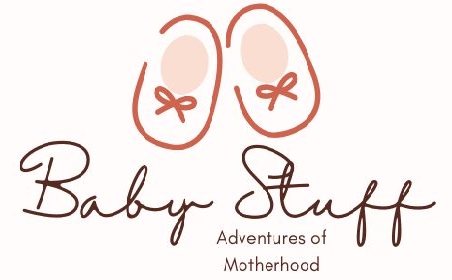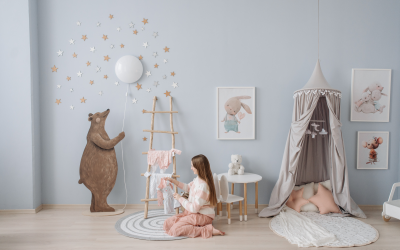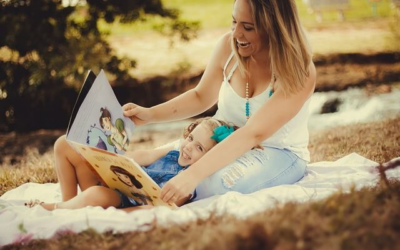One of the most fulfilling experiences a person can have is becoming a parent. However, it’s also one of the hardest. There are so many things to learn and so much to do! That’s why it’s important to arm yourself with information before your baby arrives. Baby Love n Care: A Comprehensive Guide to Raising a Healthy Baby provides everything you need to know about having a happy baby.
What to Expect in the First Year
Here are some things you can expect during your baby’s first year.
In the first few weeks, your baby will mainly eat and sleep. They will gradually develop their motor skills, and you may notice them reaching for objects and trying to roll over.
Between 3 and 6 months, your baby will develop more quickly, crawling, sitting up, and even standing on their own. They will also start to babble and laugh and begin teething.
Between 6 and 12 months, your baby will become more mobile, cruising along furniture or taking its first steps. They will also start to imitate sounds and words and develop a personality.
Feeding Your Baby
Feeding your baby is very important. You will need to give them food to grow big and strong. There are a lot of different foods you can give your baby, and it’s important to know which ones are best for them. You will also want to ensure that your baby gets enough food, but not too much. That can be hard to do, but with a little practice, you’ll get the hang of it. In order to feed your baby, you will need:
- Baby formula or breast milk
- Baby food
- Bottles
- A clean place to eat
Feeding your baby formula or breast milk is the best way to give them the necessary nutrients. Baby food is also a good option; you can find it in most stores. You will want to avoid giving your baby solid foods until they are at least six months old.
Baby bottles are another option, but you should only use them if you’re sure your baby is getting enough milk. When feeding your baby, it’s important to be gentle and patient. Babies can be fussy eaters, and it’s important not to get frustrated with them.
Diapering Your Baby
When it comes to diapering your baby, you want to make sure you are using a quality product that will keep your baby dry and comfortable. Baby Love n Care requires that you use only their diapers as they are the only ones that meet their safety and quality standards.
For Baby Love n Care, you will want to follow these simple steps:
1. Choose the right size diaper for your baby. There are usually three sizes of diapers: small, medium, and large.
2. Place the diaper on your baby, making sure that the front of the diaper is positioned correctly.
3. Fasten the diaper securely, but not too tightly, using Velcro closures.
4. Check the diaper frequently to ensure it is not too loose or too full.
5. When it is time to change the diaper, remove it and dispose of it properly.
Here are the factors you need to keep in mind while diapering your baby:
- You should never use talcum powder or cornstarch on your baby’s bottom. These can cause irritation and rashes.
- Never leave your baby unattended while they are wearing a diaper.
- Always wash your hands thoroughly after changing a diaper.
- Be sure to dispose of dirty diapers properly in a covered garbage can or diaper pail.
- If you use cloth diapers, wash them thoroughly.


Bathing and Grooming Your Baby
As far as bathing goes, you will want to fill the tub with lukewarm water and use a mild, unscented baby soap. You will also want to avoid using fragrance products on your baby’s skin, since their skin is still developing and can be easily irritated. When bathing your baby, be sure to support their head and neck at all times.
As for grooming, you will want to brush your baby’s hair with a soft-bristled brush or comb. You can also trim their nails with baby nail scissors or clippers. It is important to be gentle when grooming your baby, as their skin and hair are still delicate.
In order to proceed with Bathing and Grooming, You should
1. Start by undressing your baby and laying them on a soft, clean towel.
2. Gently wash their face with warm water and a soft cloth. Be careful not to get soap in their eyes.
3. Next, wash their hair using mild baby shampoo. Gently massage their scalp as you rinse the shampoo out.
4. Using a wet washcloth, clean their body from top to bottom, taking care to avoid their genitals and diapers.
5. To dry off your baby, wrap them in a second soft towel or use a blow-dryer on the low setting.
6. Finally, apply some lotion to their skin to help keep it hydrated
Clothing and Accessories for Your Baby
You’ll want to keep your baby’s comfort in mind for clothing and accessories. Look for items that are made of soft, natural fabrics like cotton. Avoid anything with scratchy seams or labels. Get a weather-resistant cover or rain shield if you’re using a stroller.
And don’t forget a hat or sun visor to protect your baby from the elements. There are dozens of brands and types to choose from when it comes to diapers. Do some research to find the ones that will work best for your baby. And be sure to have plenty on hand – you can never have too many!
As your baby grows, you’ll need to think about bigger things like a car seat and a crib. Again, safety is the top priority here. Do your homework to find the best products for your baby. And finally, don’t forget the toys! Babies love to play, and they learn best through exploration. Choose age-appropriate toys to help your baby develop cognitively, physically, and emotionally.
With all these things in mind, you’re well on your way to being a great parent! Congratulations – and enjoy this special time with your new little one.
Safety Tips for Parents of Babies
Here are some safety tips that every parent of a baby should know:
1. Always keep an eye on your baby while they are sleeping.
2. Make sure to put your baby in a safe place when you cannot watch them.
3. Do not leave your baby unattended in a room with open windows or doors.
4. When bathing your baby, never leave them alone in the tub for even a second.
5. Keep all potentially dangerous objects out of your baby’s reach.
6. Be extra careful when using any cleaning product around your baby, as they can be harmful if ingested.
7. If you have pets, ensure they are well-trained and will not harm your baby.
8. Keep an eye on your baby when they are around other people, even if you know them well.
9. Always store medicines and other potentially harmful substances out of your baby’s reach.
10. Never leave your baby alone in a car, even for a few minutes.
Final Thoughts
We hope you found this guide helpful. Remember, there is no one right way to raise a healthy baby. Every family is different, and what works for one may not work for another. The most important thing is to love and care for your child and to do what you feel is best for them.
Also interesting to read:
- Newborn dry lips: Sign, Causes and Treatments
- When To Switch Nipple Sizes On Baby’s Bottle – A Full Guide!
- How To Clean Baby Ears
- Tips To Get Better At Burping a Newborn That Won’t Burp
- Baby Born Deformed: What are the Main Types of Birth Defects?
- All You Should Know About Why is Newborn Nocturnal
- Why is My Newborn Wheezing?
- How to Help Your Newborn with Congestion?
- 10 Fun and Easy Daycare Activities for Infants
- From Crawling to Climbing: Day Care Baby Games





